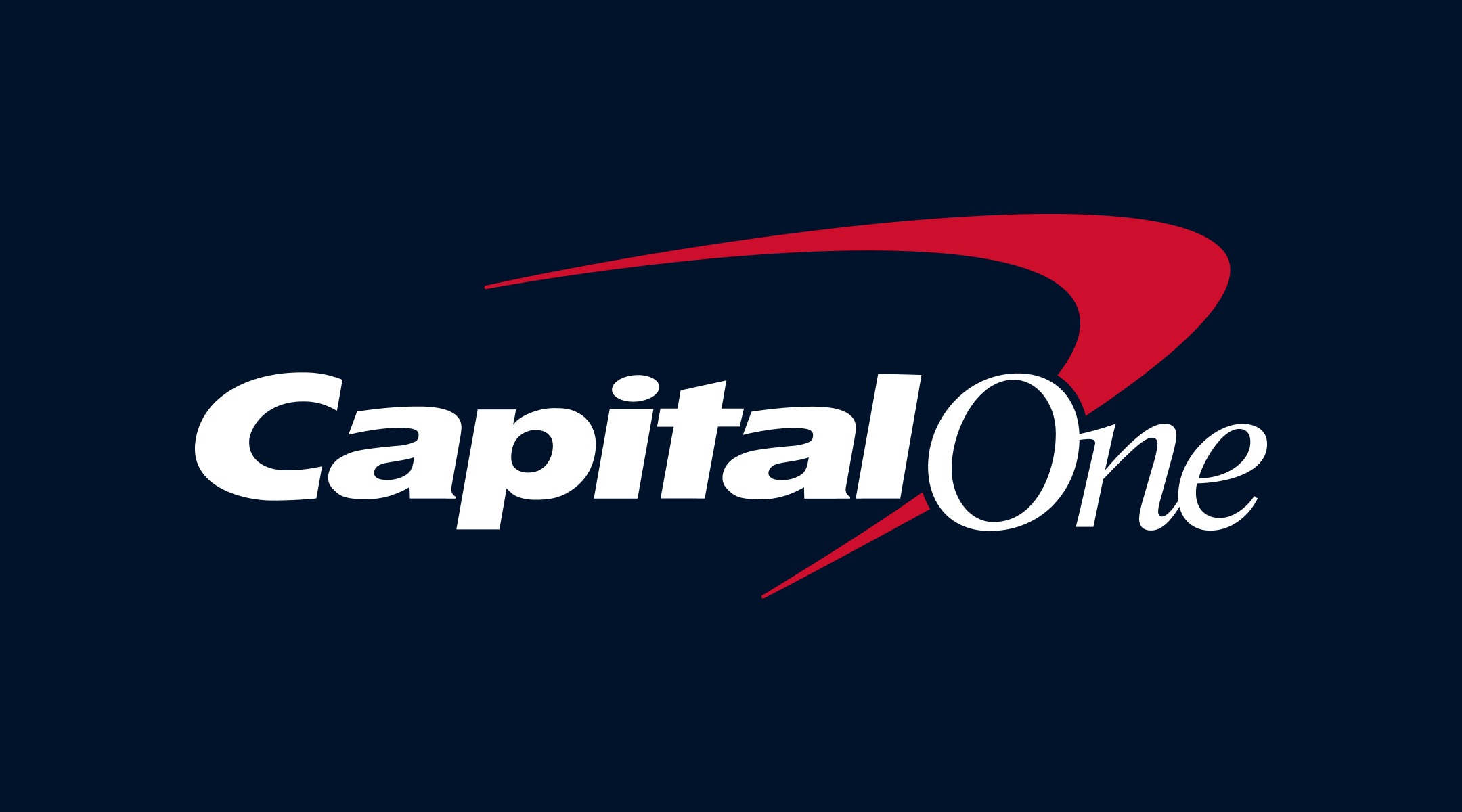

Finance
How To Buy Car With Business Credit
Modified: February 21, 2024
Learn how to buy a car using business credit. Discover financing options and strategies to make your purchase with ease.
(Many of the links in this article redirect to a specific reviewed product. Your purchase of these products through affiliate links helps to generate commission for LiveWell, at no extra cost. Learn more)
Table of Contents
- Introduction
- Understanding Business Credit
- Benefits of Buying a Car with Business Credit
- Building Business Credit
- Researching Car Options
- Finding a Car Dealership
- Applying for Car Financing with Business Credit
- Negotiating a Deal and Making the Purchase
- Managing Car Expenses and Loan Payments
- Maintaining Good Business Credit
- Conclusion
Introduction
Buying a car is an exciting but often daunting task. Whether you’re purchasing a car for personal use or for your business, it’s important to make informed decisions that align with your financial goals. In this article, we will explore the benefits and process of buying a car with business credit.
Understanding the concept of business credit is essential before diving into the car buying process. Business credit refers to the creditworthiness of a business entity, separate from an individual’s personal credit. It allows businesses to establish a credit profile and access financing options based on their own financial track record.
One of the primary benefits of buying a car with business credit is that it helps separate your personal and business finances. By using business credit, you can keep your personal assets and liabilities separate from your business ones, which can be advantageous for accounting and tax purposes.
Another advantage of using business credit is the potential for improved cash flow. Rather than draining your business’s working capital to purchase a car outright, you can utilize financing options available through business credit. This allows you to free up cash for other essential business expenses and investments.
Moreover, buying a car with business credit can help you establish and build your business credit profile. Timely loan payments and responsible credit usage can help boost your business’s creditworthiness, opening up future opportunities for financing and expansion.
However, it’s important to note that building business credit is a gradual process. Like personal credit, it requires establishing a positive payment history, maintaining low credit utilization, and demonstrating your business’s financial stability. By implementing these strategies, you can strengthen your business credit profile and increase your chances of securing favorable car financing terms.
Now that you understand the importance of business credit and the benefits of buying a car with it, let’s dive into the steps involved in the process. We will cover everything from researching car options and finding a dealership to applying for financing, negotiating a deal, and managing your car expenses and loan payments. So, let’s get started on your journey to buying a car with business credit!
Understanding Business Credit
Business credit is a financial tool that allows businesses to establish a credit profile separate from personal credit. It represents the creditworthiness and financial standing of a business entity, reflecting its ability to manage debt and make timely payments.
Building a solid business credit history is crucial for several reasons. First, it can help attract financing options and better terms when seeking loans or credit lines for business needs, including buying a car. Lenders and creditors use the business credit profile as a measure of risk and determine the interest rates and loan amounts they are willing to offer.
There are several factors that contribute to a business credit profile. One of the primary components is the payment history, which reflects how well the business has managed its financial obligations. Consistently making on-time payments to vendors, suppliers, and creditors is essential to maintain a positive payment history.
Credit utilization is another vital aspect of business credit. It refers to the proportion of available credit that a business uses. Keeping a low credit utilization ratio, ideally below 30%, shows responsible financial management and demonstrates the ability to handle credit responsibly.
Length of credit history is also a factor that plays into building strong business credit. Lenders and creditors often prefer businesses with a longer credit history, as it indicates stability and a track record of managing credit over time.
Creating a separate legal entity for your business, such as an LLC or corporation, is an important step in establishing business credit. This separates personal and business finances, ensuring that any business debts or obligations remain separate from personal ones.
To begin building business credit, start by obtaining an Employer Identification Number (EIN) from the IRS. This unique nine-digit number serves as the business’s tax identification and is required when applying for credit under the business’s name.
Next, register your business with business credit bureaus, such as Dun & Bradstreet, Experian, and Equifax. These bureaus collect and report information on business credit activity, helping to establish and maintain a business credit file.
It’s important to monitor and regularly review your business credit report to ensure the information is accurate and up to date. Address any discrepancies or errors promptly to maintain the integrity of your business credit profile.
By understanding the fundamentals of business credit and taking the necessary steps to build and maintain it, you can position your business for success and gain access to favorable financing options when it comes to purchasing a car with business credit.
Benefits of Buying a Car with Business Credit
There are several advantages to buying a car with business credit. Let’s explore the key benefits:
- Separation of Personal and Business Finances: One of the primary benefits of using business credit to purchase a car is the ability to separate personal and business finances. By establishing a separate credit profile for your business, you can avoid mixing personal and business expenses, making financial management and tax reporting more streamlined.
- Preservation of Working Capital: Using business credit to buy a car allows you to preserve your business’s working capital. Instead of using a significant portion of your cash reserves to purchase a vehicle outright, you can allocate those funds towards other critical business expenses, such as inventory, marketing, or expanding your operations.
- Access to Better Financing Options: Utilizing business credit opens up a range of financing options for purchasing a car. Business loans and lines of credit specific to vehicle financing often come with more favorable terms and interest rates compared to personal loans. This can save your business money over the long term.
- Improvement of Business Credit Profile: Buying a car with business credit provides an opportunity to build your business credit profile. Making on-time monthly payments towards your auto loan demonstrates responsible credit usage and repayment, positively impacting your business’s creditworthiness. A stronger credit profile can open doors to future financing opportunities and better rates.
- Tax Benefits: Purchasing a car with business credit can offer potential tax advantages. Depending on your business structure and the specific tax laws in your jurisdiction, you may be eligible for deductions on the vehicle’s depreciation, fuel, maintenance, and other related expenses. Consult with an accountant or tax professional to fully understand the tax benefits available to your business.
It is essential to note that while there are numerous benefits to purchasing a car with business credit, it’s crucial to approach the decision with careful consideration. Assess your business’s financial situation, cash flow, and long-term plans before proceeding. Additionally, ensure that the car you choose aligns with your business’s needs and goals.
By leveraging business credit to buy a car, you can take advantage of the aforementioned benefits while keeping your personal and business finances separate and positioning your business for future growth and success.
Building Business Credit
Building business credit is a crucial step in establishing a strong financial foundation for your business. Here are some essential steps to build and improve your business credit:
- Establish a Separate Legal Entity: Create a distinct legal entity for your business, such as an LLC or corporation. This separation is vital to ensure that your personal credit and finances are not commingled with your business credit.
- Obtain an EIN: Apply for an Employer Identification Number (EIN) from the IRS. This unique identifier will be used to establish a business credit profile and is required when applying for credit under the business’s name.
- Open a Business Bank Account: Open a dedicated business bank account to handle your business finances. Use this account for all business-related transactions, separate from your personal bank accounts.
- Register with Business Credit Bureaus: Register your business with major business credit bureaus such as Dun & Bradstreet, Experian, and Equifax. These bureaus collect and report information on your business’s credit activity, helping to establish and maintain a business credit file.
- Establish Trade Credit: Seek out vendors and suppliers who are willing to extend credit to your business. Make regular purchases from these suppliers and ensure timely payment. This will help establish a positive payment history and build trust with creditors.
- Apply for Small Business Credit Cards: Consider applying for business credit cards in your business’s name. Use these cards responsibly and pay off balances in full and on time. This will demonstrate your ability to handle revolving credit and build a track record of responsible credit usage.
- Secure a Business Line of Credit or Loan: Once you have established a solid payment history and credit profile, you may be eligible for a business line of credit or loan. Use these funds wisely and make consistent, on-time payments to further strengthen your credit.
- Monitor and Review Your Business Credit Report: Regularly monitor and review your business credit report for accuracy. Look for any errors or discrepancies and report them promptly to the credit bureaus. Monitoring your credit report will help you track your progress and ensure the information being reported is correct.
- Maintain Financial Stability: Maintain a stable financial position for your business by managing your cash flow effectively, paying bills on time, and avoiding excessive debt. Demonstrating financial stability is key to building a strong business credit profile.
Building business credit takes time and effort, but it is an essential aspect of establishing a solid financial foundation for your business. By following these steps and consistently demonstrating responsible credit behavior, you can improve your business creditworthiness, gain access to better financing options, and increase your chances of buying a car with favorable terms using business credit.
Researching Car Options
Researching car options is a crucial step in the process of buying a car with business credit. Here’s what you need to consider when exploring your car options:
- Identify Your Needs: Start by identifying the specific needs of your business. Consider factors such as the size, type, and purpose of the vehicle. This will help narrow down your options and focus on vehicles that best meet your business requirements.
- Budget: Determine the budget you have available for purchasing a car. Consider not only the price of the vehicle but also the ongoing costs of ownership, such as insurance, maintenance, and fuel. Setting a budget will help guide your research and ensure you find a car that fits within your financial means.
- Research Car Models and Features: Conduct thorough research on different car models that align with your business needs. Consider factors such as reliability, fuel efficiency, cargo space, and safety features. Look for models that have a track record of dependability and low maintenance costs.
- Compare Prices: Compare prices of different car models from various dealerships and online platforms. Consider both new and used options, as used cars can often offer significant cost savings. Look for deals, discounts, and incentives that may be available, especially for business customers.
- Consider Resale Value: Evaluate the potential resale value of the car. Cars with higher resale values can be advantageous if you plan on selling or trading in the vehicle in the future. Factors that influence resale value include brand reputation, model popularity, and overall condition.
- Read Reviews and Seek Recommendations: Read reviews from reputable sources to gather insights from other business owners and experts. Additionally, seek recommendations from trusted colleagues or professionals in your industry who have experience with buying cars for business purposes.
- Consider Financing Options: Research financing options that are available for purchasing a car with business credit. Understand the interest rates, terms, and requirements for each option. Determine whether you prefer a loan or a lease arrangement based on your business’s needs and financial situation.
- Explore Insurance Costs: Contact insurance providers to get quotes on insurance premiums for the car models you are considering. Insurance costs can vary significantly based on factors such as the car’s make, model, and safety features. Including insurance costs in your budget is crucial for accurate financial planning.
By thorough research and consideration of your business’s specific needs, budget, and available options, you can make an informed decision when selecting a car model. Remember that choosing the right car for your business is essential for maximizing productivity, efficiency, and overall value.
Finding a Car Dealership
Once you have researched and narrowed down your car options, the next step is finding a reputable car dealership to make your purchase. Here are some important factors to consider when looking for a car dealership:
- Reputation and Reliability: Look for car dealerships with a strong reputation for reliability, honesty, and excellent customer service. Read online reviews, ask for recommendations from friends or colleagues, and check with local business associations to find reputable dealerships in your area.
- Specialization in Business Sales: Consider finding dealerships that specialize in business sales or have experience working with business customers. They may have a better understanding of your specific needs and be able to provide tailored assistance and services for purchasing a car with business credit.
- Inventory Selection: Ensure that the dealership offers a wide selection of vehicles that match your business’s requirements. The dealership should have the specific make, model, and features you are looking for. A diverse inventory will give you more options and flexibility in finding the right car for your needs.
- Transparency and Pricing: Look for dealerships that are transparent about their pricing and financing options. They should provide clear information about the total cost of the vehicle, including any additional fees or charges. Make sure they are willing to provide quotes in writing and explain any financing or lease terms in a clear and understandable manner.
- Trade-In Options: If you have a vehicle to trade in, inquire about the dealership’s trade-in process and policies. Look for dealerships that offer fair trade-in values based on industry standards. This can potentially help offset the cost of your new car purchase.
- Service and Maintenance Facilities: Consider the availability and quality of the dealership’s service and maintenance facilities. It’s important to have a reliable place to bring your car for routine maintenance and repairs. Inquire about the dealership’s warranty offerings and after-sales service to ensure you are covered in case of any issues.
- Financing Options: Check if the dealership offers financing options suitable for your business. They should have experience working with business credit and be able to guide you through the financing process smoothly. Flexibility in financing terms and competitive interest rates are additional factors to consider.
It’s essential to visit the dealership in person to get a feel for their professionalism, customer service, and overall ambiance. Take the opportunity to ask questions, express your needs, and gauge their willingness to help you find the right car within your budget.
By carefully researching and selecting a reputable car dealership, you can ensure a positive buying experience and confidently proceed with purchasing a car for your business with business credit.
Applying for Car Financing with Business Credit
Once you have found the car dealership and the desired vehicle, it’s time to apply for car financing using your business credit. Follow these steps to streamline the application process and increase your chances of securing favorable financing terms:
- Review and Prepare Your Business Credit Profile: Before applying for car financing, review your business credit profile to ensure it is accurate and up to date. Fix any errors or discrepancies that you come across. This will help present a strong and reliable credit profile to potential lenders.
- Gather Documentation: Prepare the necessary documentation to support your car financing application. This may include your business financial statements, tax returns, bank statements, and proof of your business’s legal structure. Lenders will use these documents to assess your creditworthiness and ability to repay the loan.
- Research Financing Options: Research different lenders and financing options available for purchasing a car with business credit. Compare interest rates, loan terms, and requirements. Consider both traditional banks and credit unions, as well as specialized lenders that cater to business customers.
- Get Pre-Approved: Consider getting pre-approved for car financing before visiting the dealership. Pre-approval provides a clear idea of how much you can afford, streamlines the purchasing process, and strengthens your negotiation power with the dealership.
- Apply for Financing: Once you have chosen a lender, complete the car financing application. Provide accurate and detailed information about your business’s financial status, credit history, and the vehicle you wish to purchase. Be prepared to provide any additional documentation that the lender may request.
- Negotiate Loan Terms: Review the financing terms offered by the lender and negotiate if necessary. Pay close attention to the interest rate, loan duration, and any prepayment penalties. Aim for terms that align with your business’s financial goals and ensure that the monthly payments fit comfortably within your budget.
- Read and Understand the Loan Agreement: Carefully review the loan agreement before signing. Look for any hidden fees or clauses that may affect the loan’s terms and obligations. Seek clarification on any points you don’t understand and ensure that all agreed-upon terms are clearly stated in the contract.
- Complete the Purchase: Once the loan is approved and the terms are agreed upon, work closely with the dealership to complete the purchase process. Provide the necessary documentation and make any required down payment or trade-in arrangements. Be prepared to sign all the necessary paperwork and ensure that all details are accurate.
Remember to keep a copy of all the loan documents, including the loan agreement and any disclosures provided by the lender. These documents are important for record-keeping and reference in case of any disputes or issues in the future.
By following these steps and maintaining open communication with your lender and the dealership, you can successfully apply for car financing with your business credit and secure a loan that suits your needs, enabling you to purchase the desired vehicle for your business.
Negotiating a Deal and Making the Purchase
Once you have secured car financing with your business credit, it’s time to negotiate a deal with the dealership and make the purchase. Here are some tips to help you navigate the negotiation process and ensure a successful transaction:
- Research the Market Value: Before entering into negotiations, research the market value of the vehicle you intend to purchase. Use reputable online resources and compare prices from different dealerships. This knowledge will give you an idea of the fair price range and empower you during negotiations.
- Be Prepared to Walk Away: Have a firm idea of the maximum price you are willing to pay for the vehicle. If negotiations are not going in your favor or the dealership is not meeting your requirements, be prepared to walk away. There are other options available, and maintaining your leverage is essential.
- Focus on the Total Package: Negotiate the full package, considering factors beyond just the vehicle’s price. Look for opportunities to negotiate extras such as extended warranties, maintenance packages, or add-ons. Assess the overall value proposition and ensure it aligns with your needs and budget.
- Highlight Your Business’s Creditworthiness: Emphasize your business’s positive credit profile and the fact that you are purchasing the vehicle with business credit. This can help strengthen your negotiation position and potentially lead to more favorable terms or discounts.
- Consider Timing: Keep an eye on any ongoing promotions or clearance sales that dealerships may be offering. Timing your purchase strategically can provide opportunities for additional discounts or special financing options.
- Negotiate Trade-In Value: If you have a vehicle to trade in, negotiate the trade-in value separately from the purchase price. Research the market value of your trade-in and be prepared to present evidence to support your ask. Remember, you can always sell your old vehicle privately if the dealership’s trade-in offer is not satisfactory.
- Review and Understand Financing Terms: Ensure that the financing terms you agreed upon during the application process are accurately reflected in the final purchase agreement. Double-check the interest rate, loan duration, and any other agreed-upon financing details to avoid surprises or discrepancies.
- Thoroughly Inspect the Vehicle: Before finalizing the purchase, thoroughly inspect the vehicle to ensure it meets your expectations and is in proper condition. Test-drive the car and look for any signs of damage or mechanical issues. If possible, have a trusted mechanic inspect the vehicle as well.
- Double-Check Documentation: Review all the documentation related to the purchase, including the sales contract, financing agreement, and any additional forms. Ensure that all details, such as the vehicle identification number (VIN), purchase price, and financing terms, are accurate and match your expectations.
- Complete the Transaction: Once everything is in order and you are satisfied with the agreement, complete the purchase by signing all necessary documents. Make any required down payment and ensure that you receive copies of all signed paperwork for your records.
By approaching the negotiation process with confidence and being well-prepared, you can effectively negotiate a deal that meets your needs and ensures a successful purchase of the vehicle for your business. Remember to maintain open communication with the dealership throughout the process and always advocate for the best deal possible.
Managing Car Expenses and Loan Payments
After purchasing a car with business credit, it’s important to effectively manage your car expenses and loan payments to maintain a healthy financial position. Here are some tips to help you stay on top of your car-related finances:
- Create a Car Expense Budget: Develop a budget specifically for your car-related expenses. Include monthly loan payments, insurance premiums, fuel costs, regular maintenance, and any other expenses associated with owning and operating the vehicle. This will help you plan and allocate funds accordingly.
- Automate Loan Payments: Set up automatic payments for your car loan to ensure that they are made on time. Late or missed payments can negatively impact your credit profile. Automating payments will help you avoid unnecessary penalties and maintain a positive payment history.
- Monitor Fuel Efficiency: Keep track of your car’s fuel efficiency and take steps to improve it, such as ensuring proper tire inflation, regular maintenance, and avoiding excessive idling. Efficient fuel usage will help reduce your overall operating costs.
- Maintain Regular Maintenance: Follow the manufacturer’s recommended maintenance schedule for your vehicle. Regularly servicing your car can help prevent major repairs and ensure optimal performance, extending the lifespan of the vehicle. Factor in maintenance costs when planning your car budget.
- Consider Insurance Options: Review your car insurance coverage and premiums regularly to ensure you have adequate protection at a competitive price. Shop around for insurance providers and compare quotes to find the best coverage for your business’s needs.
- Track and Document Expenses: Keep detailed records of all car-related expenses, including receipts, invoices, and maintenance logs. This will be useful for tax purposes, tracking business expenses, and identifying any potential warranty claims or insurance reimbursements.
- Plan for Vehicle Depreciation: Understand that vehicles generally depreciate in value over time. Consider the future resale or trade-in value of your car when making financial decisions. Budget accordingly and plan for the eventual need to replace or upgrade your vehicle.
- Review Financing Terms Periodically: Regularly review the terms of your car financing to ensure they still align with your business’s financial goals. If you find that the terms are no longer favorable, explore refinancing options to potentially reduce your interest rate or extend the loan term.
- Communicate with Lender and Dealership: Maintain open communication with your lender and the dealership. If you encounter any financial difficulties or anticipate challenges in making loan payments, discuss your situation with them promptly. They may be able to offer temporary solutions or work out alternate arrangements.
- Plan for Upcoming Expenses: Anticipate upcoming car expenses, such as scheduled maintenance, tires replacement, or registration fees. Budget and set aside funds accordingly to avoid any financial strain when these expenses arise.
By effectively managing your car expenses and loan payments, you can maintain control over your business’s finances and ensure the long-term affordability and sustainability of owning a car. Regular monitoring, planning, and proactive communication will help you stay on track and minimize any financial stress related to your vehicle.
Maintaining Good Business Credit
Maintaining good business credit is crucial for the long-term success and financial stability of your business. Here are some key strategies to help you maintain and improve your business credit:
- Pay Bills on Time: Ensure that all your business credit obligations, including loan payments, trade credit, and credit card balances, are paid on time. Late payments can have a negative impact on your business credit score, so prioritize timely payments to maintain a positive payment history.
- Monitor Your Credit Reports: Regularly review your business credit reports from major credit bureaus such as Dun & Bradstreet, Experian, and Equifax. Check for any errors or inaccuracies and promptly dispute and correct them. Monitoring your credit reports allows you to stay aware of your creditworthiness and address any potential issues.
- Keep Credit Utilization Low: Aim to keep your business credit utilization ratio low. This ratio represents the percentage of your available credit that you are currently using. Keeping it below 30% is generally recommended. This shows lenders that you are managing your credit responsibly and not relying heavily on borrowed funds.
- Manage Existing Credit Lines: Maintain a healthy and consistent payment history with your existing creditors. Regularly review the terms of your credit lines, loans, and leases to ensure that you are meeting the agreed-upon terms. Communicate with your creditors if you anticipate any difficulties in making payments.
- Establish Trade Credit Relationships: Build relationships with vendors and suppliers who report to business credit bureaus. Establish and maintain positive payment history with them, as this can strengthen your business credit profile. Timely payments to suppliers and a good trade credit history will contribute to a positive credit reputation.
- Avoid overextending Your Credit: Be cautious about taking on too much debt or extending your credit obligations beyond your business’s ability to handle them. Maintain a balanced approach to borrowing and only take on credit that your business can comfortably repay.
- Diversify Your Credit: Consider obtaining different types of credit to diversify your credit profile. This might include a mix of business credit cards, trade credit, equipment financing, or business lines of credit. Demonstrating your ability to manage various forms of credit can improve your perceived creditworthiness.
- Stay Informed About Your Industry: Stay up to date with the latest trends, challenges, and opportunities in your industry. This knowledge helps you make informed decisions, anticipate changes that may impact your business’s financial health, and stay ahead of the curve.
- Review Your Business Finances Regularly: Regularly review your business’s financial statements, profit and loss reports, and cash flow projections. Understanding the financial health of your business allows you to identify areas for improvement and take proactive steps to maintain a strong credit profile.
- Seek Professional Guidance: If you are unsure about managing your business credit or need assistance, consider seeking guidance from a financial advisor, accountant, or credit counseling service. They can provide insights and strategies specific to your business’s needs and help you navigate any challenges.
Remember that maintaining good business credit is an ongoing process. It requires consistent effort, responsible financial management, and a focus on building strong relationships with creditors and suppliers. By prioritizing good credit practices, you can position your business for future growth, access better financing options, and increase your overall financial stability.
Conclusion
Buying a car with business credit offers numerous benefits, including the separation of personal and business finances, preservation of working capital, and the opportunity to build and strengthen your business credit profile. With careful research, effective management of business credit, and sound financial planning, you can successfully navigate the process of purchasing a car for your business.
Understanding the concept of business credit is paramount in making informed decisions. Building a solid business credit profile requires responsible credit usage, timely payments, and maintaining low credit utilization. It is an ongoing process that involves establishing a separate legal entity for your business, obtaining an EIN, and registering with business credit bureaus.
Researching car options is an important step, involving identifying your business’s needs, budgeting, comparing prices, and considering factors like resale value and insurance costs. Finding a reputable car dealership that specializes in business sales will ensure a smooth purchasing process, while negotiating a deal and understanding financing terms can help you secure the best price and favorable loan conditions.
Once you’ve purchased the car, managing car expenses and loan payments becomes crucial. Creating a car expense budget, automating loan payments, and maintaining regular maintenance are key components of effective management. It is important to maintain good business credit by paying bills on time, monitoring credit reports, and managing existing credit relationships.
By following these steps and maintaining good business credit, you can enjoy the advantages of purchasing a car with business credit while positioning your business for growth and success. Remember to review and adjust your financial strategy as needed, seek professional guidance when required, and stay informed about industry trends and market dynamics.
As you embark on the journey of buying a car with business credit, make informed decisions, prioritize responsible financial management, and strive to maintain a healthy credit profile. With careful planning and the right strategies in place, you can significantly benefit your business’s financial well-being and facilitate its continued success.














